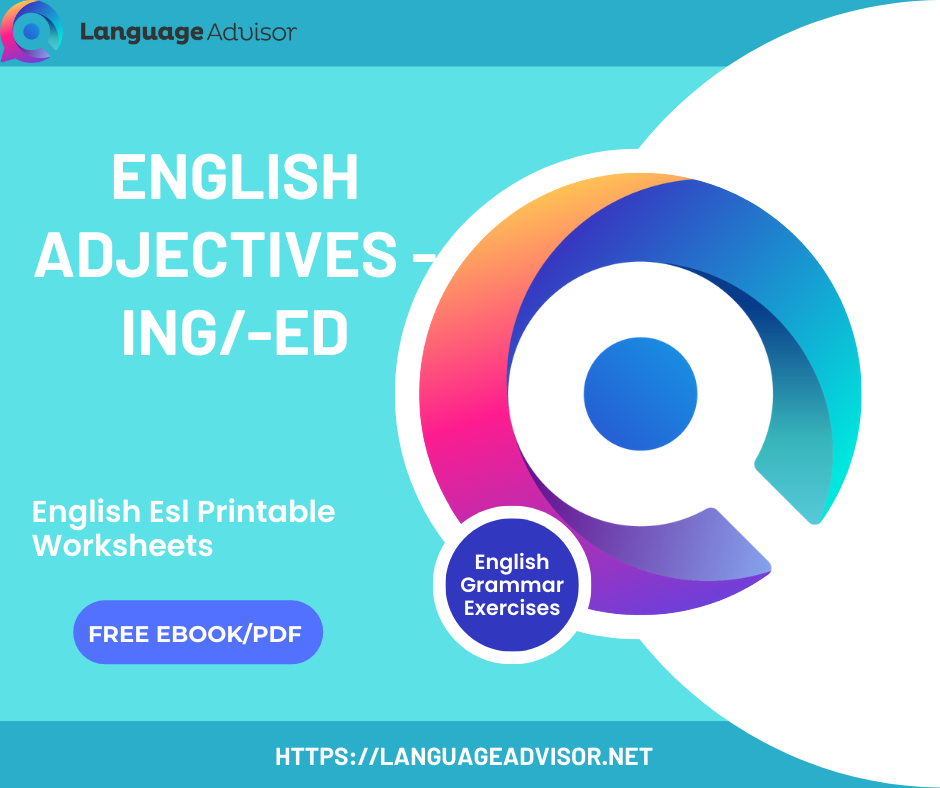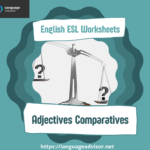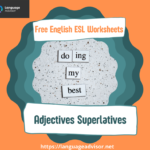Adjectives ending in ‘-ed’ and ‘-ing’. English ESL Worksheets. English grammar with exercises. Free eBook and Free printable PDF
Adjectives ending in ‘-ed’ and ‘-ing’

Adjectives ending in ‘-ed’ and ‘-ing’
Adjectives ending in ‘-ed’ and ‘-ing’ (e.g. bored, boring) are often confused.
-ed adjectives
Adjectives that end in -ed generally describe emotions:
I was so bored in that lesson, I almost fell asleep.
He was surprised to see Helen after all those years.
She was really tired and went to bed early.
Many of them have the same form as the past participle of the verb:
Your behaviour this evening has disappointed me.
I am disappointed with your behaviour this evening.
Here are some more common adjectives which have a similar meaning to the related verb:
| amused | astonished | confused | delighted | depressed |
| distressed | embarrassed | excited | frightened | interested |
| satisfied | shocked | surprised | tired | worried |
It worries me that Jack stays out so late every night. I am a very worried mum.
I would be interested to know if you are planning to visit Greece this summer.
That interests me because I shall be there throughout August and September.
You will embarrass your father if you dare to wear clothes like that.
She came down the stairs wearing jeans with holes in them and I have never been so embarrassed.
-ing adjectives
Adjectives that end in -ing generally describe the thing that causes the emotion:
Have you seen that film? It’s really frightening.
I could listen to her for hours. She’s so interesting.
I can’t sleep! That noise is really annoying!
Here are some adjectives that can have both an -ed and an -ing form.
| annoyed | annoying |
| bored | boring |
| confused | confusing |
| disappointed | disappointing |
| excited | exciting |
| frightened | frightening |
| interested | interesting |
| surprised | surprising |
| tired | tiring |
| worried | worrying |

Adjectives ending in ‘-ed’ and ‘-ing’

Exercises
EXERCISE 1.
Choose the right form of the adjective:
e.g. I am tired / I am tiring.
- This music is relaxed / relaxing.
- I am interested / interesting in pop music.
- My friend knows some very interested / interesting stories.
- Mike is such an interested / interesting person.
- The lesson is too long. We are all getting boring / bored.
- The results of the test were surprising / surprised.
EXERCISE 2.
Fill in the gaps with an adjective ending in –ed or –ing
e.g. I like this book. I think it is very interesting.
- 1. I have worked the whole day. Now I am _____________.
- 2. I need to relax. Have you got some ___________________ music for me?
- 3. I don’t like this program. I don’t think it is very ___________________.
- 4. How can you stand always doing the same thing? I would get _______________.
- I was ____________________ to hear that he had gone away. I really didn’t expect it.

All downloads are in PDF format
BROWSE THE EBOOK ONLINE OR DOWNLOAD THE PDF FOR FREE






